by Colin Eakin


ow that the Statement on Social Justice and the Gospel (https://statementonsocialjustice.com/) has arrived as a bulwark against the mudslide of attempts to merge the two (i.e. social justice and the gospel), not even those most opposed to its conception can disagree with its content.
But one awkward truth lingers in the back of every thoughtful Christian's mind. It's a lesson that has been reinforced repeatedly by the cyclical rhythm of church history. It's this:
When one merges human amelioration of suffering and injustice with divine remediation of sin, inevitably the purpose and impact of the Cross and Resurrection of Jesus Christ takes a backseat. As Pastor John MacArthur has remarked, this is the sad legacy of mainline Protestant denominations over the past century—a rise in the focus on enhancing social welfare tightly correlated with a decline of interest in (
and understanding of) how sinners might be saved from their sin.
So how does the "social justice gospel" maintain its appeal? To elaborate, how could the
evangelion of Jesus Christ, with its transcendent promises—that a sinner worthy only of eternal punishment can be forgiven of all moral debt (Col. 2:13-14; 1 John 1:9), can be robed in the righteousness of the Savior (Isa. 61:10), can be adopted by God as a full-fledged sibling of Christ (Rom. 8:15-17), can be set higher than angelic beings with the same glory as of God Himself (John 1:12; 1 Cor. 6:3; 1 John 3:2), and can be made an ambassador of Christ for the sake of other souls He seeks to save (2 Cor. 5:18-20)—how could such an infinite, too-marvelous-for-words opportunity ever be pedestrianized with finite goals such as elimination of economic disparities and redress of earthly inequalities? With such a stupendous opportunity at stake, why would anyone be tempted to substitute
anything for the incomparable prize of the upward call (Phil. 3:14)?
Jesus knew how ludicrous any conflation of earthly and heavenly possibilities would be, asking—incredulously—(Mark 8:36),
"For what does it profit a man to gain the whole world and forfeit his soul?" For Jesus, it does not matter how much one might improve his or her condition in this world—
even to the conquest of it all!—if such a development also brought eternal damnation. In another passage, Jesus wonders why one would come to Him to remediate an earthly injustice when His heavenly offer beckons, even going so far as to implicate covetousness as the root cause of fixation on earthly conditions (Luke 12:13-15).
The true gospel is about how penitent and believing sinners—no matter the race, nationality, gender, or any other category—
forfeit the world and become united in one spiritual family (Eph. 2:13-22) precisely because a Holy Father has redeemed them through faith in the substitutionary work of the Holy Son. It is about how one turns his or her back on the temporal in order to have one's sins forgiven, blotted out and remembered no more (Isa. 43:25; Heb. 8:12). It is about renunciation of this world and all its attractions for the sake of an eternal inheritance that is
"imperishable, undefiled, and unfading, kept in heaven for you" (1 Pet. 1:4).
It is about how doing the above grants access to the throne room of God! (Rom. 5:1-2). This should not be a tough sell, folks.
So, given all of the above, given the gulf between what God offers in His true gospel and what "social justice gospel-ers" are offering in theirs, how does their so-called "social justice gospel" maintain any traction? What's behind the "social justice gospel-ers" and their incessant focus, on the temporal and material, on the evanescent here and now?
The Bible is not silent on this question. In fact, it provides the universal explanation behind all corruptions of the true gospel, regardless of the age or form. But before we see God's explanation behind "social justice" (or any other) distortions of the true gospel, we must first address the
two distinct aspects of what it means to be a Christian: (1) what one does and (2) what one says. From the earliest days of the Church, these have always been the twin features of the authentic Christian life. We might term them the
benevolent works and
benevolent words of the faithful.

Let's start with benevolent works—what one does as a Christian. The Bible is clear—Christians love (1 Cor. 13:35). They serve (John 13:14-15). They bind up the wounds of the hurting, feed the hungry, and clothe the poor (Isa. 58:10). They remember the widows and orphans and others who are easily forgotten (Isa. 1:17; James 1:27). They care for the stranger, for the sick, and for the imprisoned (Matt. 25:34-40). And do you know what?
The world loves it all. Write it down: the world has always loved the good works of Christians. In fact, it will even seek to partner with Christians in doing these works. The conflict between the world and the Christian promised by Jesus (John 7:7; 15:18; 16:1-4; 1 John 2:15-17) never comes from the world's disapproval of the benevolent
works of the Christian.
No, the conflict between the world and the Christian comes only in the other aspect of what it means to be a Christian, when the faithful believer proclaims the benevolent words of salvation. Here is where the love affair between the world and Jesus abruptly ends. Why is that? Because as much as the world will love what Christians
do, when those same Christians are faithful in proclaiming the true gospel of Jesus Christ, the world will hate what they have to
say (Matt. 10:22; Luke 21:17; John 15:19).
Christians do good works and enjoy the affirmation of the world. Then the faithful open their mouths, starting with the announcement of a holy God who cannot look upon evil (Hab. 1:13), and who has promised its eventual just judgment (Eccl. 12:14). They tell the world that evil is endemic to all as the result of Adam's fall, and therefore everyone lives under a sentence of condemnation and coming judgment (John 3:18; 36). The faithful plead with the world to repent before Christ the Savior and surrender to His Lordship (Mark 1:15). The faithful warn all who will listen that without repentance and belief in the transforming work of Christ, they will die and spend eternity in hell as a penalty for their sin (Ezek. 18:4,20; Luke 13:1-5; John 8:24).
All the while, faithful Christians announce the true gospel—the "good news"—that God will forgive those who repent and trust in His grace to pardon them of their sin, knowing that the true gospel message is the only hope for sinners. And because the gospel they proclaim is the only hope for a dying world, faithful Christians know that pointing sinners to the eternal life God offers for those who repent and believe is
true love. But the sinful, rebellious heart is wired such that, apart from God's effectual call and power to illuminate His truth, it spurns the benevolent words spoken by Christians. In fact, Romans 1:18 says that the unrighteous suppress the truth
precisely because of their unrighteousness.
The last week of Jesus' life is a case study of the world's diametrically opposite responses to Christ's benevolent works and to His benevolent words. At the beginning of the week, Jesus rides into Jerusalem to the welcome of the adoring multitude, who hail Him as their coming King. The crowd had witnessed His miracles. They had eaten the miraculous loaves and fish (John 6:1-14). They had seen Lazarus raised from the dead (John 11:1-44). Jesus had proven to them with His miraculous works that He was someone of power and authority. The crowd worshipped Him for His signs, and they always pressured Him for more (Matthew 12:38; 16:1; Mark 8:11; Luke 11:29).
So as Jesus rides into Jerusalem at the start of Passover Week, the people go before Him and cry, "Hosanna! Hosanna!" They are ready to follow Him as their leader. They are ready for the revolution and the new Kingdom they believe Jesus is introducing (Matthew 21:1-11; Mark 11:1-11; Luke 19:28-40; John 12:12-15). But do you notice that adoration does not last for long? In the following days, one sees Jesus deconstructing all the empty religious premises the people held dearest. One sees Him overturning the tables of profiteers in the temple and driving out the moneychangers (Matthew 21:12-13; Mark 11:15-19; Luke 19:45-48). One sees Him undermining the Jews' entire form of religion as He upbraids their religious leaders (Matthew 23:1-39). Pretty soon, the crowd has lost all its regard for Him. Now, Jesus is
saying things
to them, not
doing things
for them. And what He is saying insults them. His message offends them.
In a parable, He says that the owner (understood as God) of a vineyard (understood as Israel) is coming to destroy the tenants and give the vineyard to those who will be more faithful (Matthew 21:33-46; Mark 12:1-12). The crowd knows that Jesus is referring to them as the unworthy tenants. So even though they cheered His entry into the city earlier in the week, by Friday they are crying, "Crucify Him! Crucify Him!" The benevolent
works of Jesus brought the praise of the people. And, in the same manner, the benevolent
words of Jesus brought about His crucifixion. The people loved His works and hated His words. And twenty-one centuries later, nothing has changed. God continues to bring sinners to repentance, day by day, one sinner at a time. But most ultimately reject His offer of eternal life, because they hate the message that they are sinners in need of a Savior.
Jesus says in
John 3:19,
"'And this is the judgment: the light has come into the world, and people loved the darkness rather than the light because their works were evil'." Because the world loves its sin,
the gospel message proclaimed by faithful Christians will provoke the world's
hatred and rejection. And if one persists in declaring the benevolent message
of pardon for repentance, it will ultimately bring persecution. Paul writes in
2 Timothy 3:12 that,
"all who desire to live a godly life in Christ Jesus will be persecuted." This is the normal response to be anticipated for all faithful
believers, for all who bring the true gospel message.
The world has no problem with the Church doing good works. In fact, it welcomes them. It will even seek to partner with the Church in pursuing them. But the world despises the true message of the Church, the only message offering real hope by calling all to repentance and faith in Christ's atoning work. And it will reject and persecute those churches that persist in proclaiming the true gospel.
So here is our answer to the question posed in our title:
the social justice gospel is, at its core, driven by a desire to avoid repudiation by the world. Do you doubt this? Then look and see the extent to which those propounding a "social justice gospel" have in their teaching and ministries any statements or positions that would incite the world's opprobrium. Go to the body of teaching of any prominent spokesperson for a "social justice gospel" and see how often that individual highlights the vilification and persecution God says will come to those who faithfully pursue His true gospel. Look hard and look long, because the data will be slow in forthcoming.
Paul writes to the Galatians,
"It is those who want to make a good showing in the flesh who would force you to be circumcised, and only in order that they may not be persecuted for the cross of Christ" (Gal. 6:12). The Judaizers of Paul's day demanded that converts to Christianity must also comply with Jewish ceremonial stipulations—including circumcision—in order to be truly redeemed. The reason? The very real possibility that Jewish denunciation might lead to Roman persecution (Acts 18:12-17). And this potential for persecution has attended all gospel proclamation until now. Since the days of the early Church, no matter the particulars of the age or threat, the rationale for deviation from the true gospel is always fear of rejection, fear of reproach, fear of recrimination from a hostile world.

All false gospel efforts—including the "social justice gospel"—are attempts to have it both ways, to maintain a veneer of Christian orthodoxy while at the same time currying favor with the world. The result? A reinvention of Jesus into someone who is less polarizing and more genteel, and a sanitization of His gospel into one that the world might accept. But this is nothing less than apostasy. Want to know what God considers an apostate church? It is a church that is all about good
works, and timidly avoids saving
words. It is a church that aligns its ministry with the works the world wants to see—helping the poor, healing the sick, feeding the hungry—without simultaneously proclaiming the saving gospel the world despises. And as it pursues good works, even claiming to do them in Jesus' name, the apostate church will deliberately shun Jesus' saving words. Its distorted gospel—devoid of sin, judgment, or any call to true repentance—becomes, "God loves us, so let's love Him back by doing good works in the name of Jesus." It will avoid bold proclamation of the true gospel message, because the true gospel is a message that the world abhors, and the apostate church is ever genuflecting at its throne.
On the other hand, a true church knows that persecution is coming, but still remains faithful to the true gospel. A true church carefully extricates ideas of human munificence from the true gospel tof divine accomplishment. A true church instructs its members on the two essential duties of all who are saved: yes,
certainly, benevolent
works bringing temporal reprieve toward those depriveds of justice or suffering from want. But these works, no matter how good and how necessary, are never,
ever to be elevated above—
and therefore lead to the exclusion of—benevolent
words bringing opportunity for redemption and eternal glory in union with God.
Dr. Colin L. Eakin
Pyromaniac
 Dr. Eakin is a sports medicine orthopædic surgeon in the Bay Area and part time teacher at Grace Bible Fellowship Church's Stanford campus ministry. He is the author of God's Glorious Story. Dr. Eakin is a sports medicine orthopædic surgeon in the Bay Area and part time teacher at Grace Bible Fellowship Church's Stanford campus ministry. He is the author of God's Glorious Story. |
|
(Portions of this article are adapted from God's Glorious Story: GBF Press, 2017)


 ow that the Statement on Social Justice and the Gospel (https://statementonsocialjustice.com/) has arrived as a bulwark against the mudslide of attempts to merge the two (i.e. social justice and the gospel), not even those most opposed to its conception can disagree with its content.
ow that the Statement on Social Justice and the Gospel (https://statementonsocialjustice.com/) has arrived as a bulwark against the mudslide of attempts to merge the two (i.e. social justice and the gospel), not even those most opposed to its conception can disagree with its content. Let's start with benevolent works—what one does as a Christian. The Bible is clear—Christians love (1 Cor. 13:35). They serve (John 13:14-15). They bind up the wounds of the hurting, feed the hungry, and clothe the poor (Isa. 58:10). They remember the widows and orphans and others who are easily forgotten (Isa. 1:17; James 1:27). They care for the stranger, for the sick, and for the imprisoned (Matt. 25:34-40). And do you know what? The world loves it all. Write it down: the world has always loved the good works of Christians. In fact, it will even seek to partner with Christians in doing these works. The conflict between the world and the Christian promised by Jesus (John 7:7; 15:18; 16:1-4; 1 John 2:15-17) never comes from the world's disapproval of the benevolent works of the Christian.
Let's start with benevolent works—what one does as a Christian. The Bible is clear—Christians love (1 Cor. 13:35). They serve (John 13:14-15). They bind up the wounds of the hurting, feed the hungry, and clothe the poor (Isa. 58:10). They remember the widows and orphans and others who are easily forgotten (Isa. 1:17; James 1:27). They care for the stranger, for the sick, and for the imprisoned (Matt. 25:34-40). And do you know what? The world loves it all. Write it down: the world has always loved the good works of Christians. In fact, it will even seek to partner with Christians in doing these works. The conflict between the world and the Christian promised by Jesus (John 7:7; 15:18; 16:1-4; 1 John 2:15-17) never comes from the world's disapproval of the benevolent works of the Christian. All false gospel efforts—including the "social justice gospel"—are attempts to have it both ways, to maintain a veneer of Christian orthodoxy while at the same time currying favor with the world. The result? A reinvention of Jesus into someone who is less polarizing and more genteel, and a sanitization of His gospel into one that the world might accept. But this is nothing less than apostasy. Want to know what God considers an apostate church? It is a church that is all about good works, and timidly avoids saving words. It is a church that aligns its ministry with the works the world wants to see—helping the poor, healing the sick, feeding the hungry—without simultaneously proclaiming the saving gospel the world despises. And as it pursues good works, even claiming to do them in Jesus' name, the apostate church will deliberately shun Jesus' saving words. Its distorted gospel—devoid of sin, judgment, or any call to true repentance—becomes, "God loves us, so let's love Him back by doing good works in the name of Jesus." It will avoid bold proclamation of the true gospel message, because the true gospel is a message that the world abhors, and the apostate church is ever genuflecting at its throne.
All false gospel efforts—including the "social justice gospel"—are attempts to have it both ways, to maintain a veneer of Christian orthodoxy while at the same time currying favor with the world. The result? A reinvention of Jesus into someone who is less polarizing and more genteel, and a sanitization of His gospel into one that the world might accept. But this is nothing less than apostasy. Want to know what God considers an apostate church? It is a church that is all about good works, and timidly avoids saving words. It is a church that aligns its ministry with the works the world wants to see—helping the poor, healing the sick, feeding the hungry—without simultaneously proclaiming the saving gospel the world despises. And as it pursues good works, even claiming to do them in Jesus' name, the apostate church will deliberately shun Jesus' saving words. Its distorted gospel—devoid of sin, judgment, or any call to true repentance—becomes, "God loves us, so let's love Him back by doing good works in the name of Jesus." It will avoid bold proclamation of the true gospel message, because the true gospel is a message that the world abhors, and the apostate church is ever genuflecting at its throne. Dr. Eakin is a sports medicine orthopædic surgeon in the Bay Area and part time teacher at Grace Bible Fellowship Church's Stanford campus ministry. He is the author of
Dr. Eakin is a sports medicine orthopædic surgeon in the Bay Area and part time teacher at Grace Bible Fellowship Church's Stanford campus ministry. He is the author of 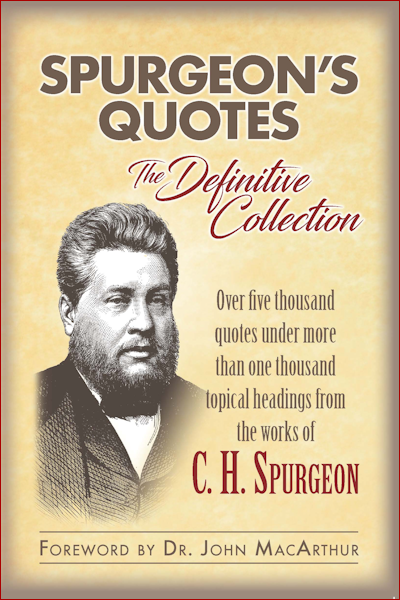

 n
n 

 love listening to people. I love learning from people. And the most effective way to listen and learn better, is to ask questions. So today, I'm starting a new series called Seven Questions With. In this series, I will be interviewing some of the most interesting people who shape how we think of Christ, culture, and more.
love listening to people. I love learning from people. And the most effective way to listen and learn better, is to ask questions. So today, I'm starting a new series called Seven Questions With. In this series, I will be interviewing some of the most interesting people who shape how we think of Christ, culture, and more.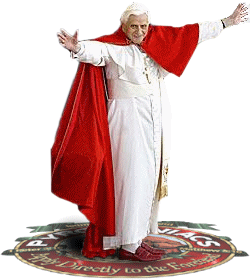 One of the tools of Tetzel's double-dealing was a trite bit of doggerel: "As soon as the coin in the coffer rings, the soul from purgatory springs." Today's evangelicals have abandoned classic hymnology and psalmody in favor of generically romantic-sounding sentimental love songs that are just as false as (and much more banal than) Tetzel's little rhyme.
One of the tools of Tetzel's double-dealing was a trite bit of doggerel: "As soon as the coin in the coffer rings, the soul from purgatory springs." Today's evangelicals have abandoned classic hymnology and psalmody in favor of generically romantic-sounding sentimental love songs that are just as false as (and much more banal than) Tetzel's little rhyme.
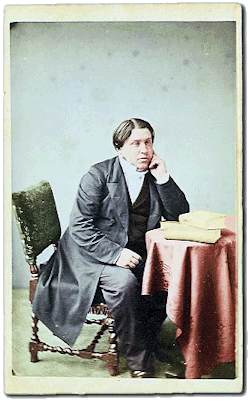 Spurgeon and Charles Dickens were contemporaries, so the workhouses and other class disparities that Dickens lampooned in his novels were facts that Spurgeon witnessed up close and deplored. (He famously founded an orphanage to help with the problem.) He was a classical liberal—an advocate of equal rights for all classes. He was openly hostile to the Tory policies of his time that were designed to perpetuate class distinctions and make political hay off tensions between the classes.
Spurgeon and Charles Dickens were contemporaries, so the workhouses and other class disparities that Dickens lampooned in his novels were facts that Spurgeon witnessed up close and deplored. (He famously founded an orphanage to help with the problem.) He was a classical liberal—an advocate of equal rights for all classes. He was openly hostile to the Tory policies of his time that were designed to perpetuate class distinctions and make political hay off tensions between the classes. "Gospel issue" is one of those terms that gets thrown around without careful definition—and I suspect that some of those who are most insistent that "social justice" is a gospel issue are purposely vague about what they mean by that, because they frequently equivocate.
"Gospel issue" is one of those terms that gets thrown around without careful definition—and I suspect that some of those who are most insistent that "social justice" is a gospel issue are purposely vague about what they mean by that, because they frequently equivocate.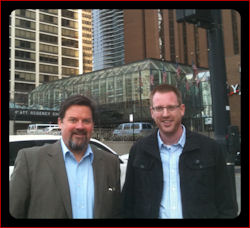 Is Challies really as sweet-tempered as he pretends to be whenever he's around me?
Is Challies really as sweet-tempered as he pretends to be whenever he's around me?

 n my previous post, I introduced the topic of spiritual discernment and its appalling absence in the Church today. Despite God's explicit warning (1 Tim. 4:1) that, "in later times some will fall away from the faith, paying attention to deceitful spirits and doctrines of demons," many professing believers do just that. They proceed week to week exposed to noxious instruction that deftly yet decidedly unmoors them from the true Christian faith, blithely unaware of their predicament.
n my previous post, I introduced the topic of spiritual discernment and its appalling absence in the Church today. Despite God's explicit warning (1 Tim. 4:1) that, "in later times some will fall away from the faith, paying attention to deceitful spirits and doctrines of demons," many professing believers do just that. They proceed week to week exposed to noxious instruction that deftly yet decidedly unmoors them from the true Christian faith, blithely unaware of their predicament. What are these "doctrines of demons," against which the Holy Spirit expressly warns? What is this toxic teaching that jeopardizes the faith of so many? The Apostle Paul provides a framework for its understanding in his critique to the church in Corinth (2 Cor. 11:4; italics added): "For if someone comes and proclaims another Jesus than the one we proclaimed, or if you receive a different spirit from the one you received, or if you accept a different gospel from the one you accepted, you put up with it readily enough."
What are these "doctrines of demons," against which the Holy Spirit expressly warns? What is this toxic teaching that jeopardizes the faith of so many? The Apostle Paul provides a framework for its understanding in his critique to the church in Corinth (2 Cor. 11:4; italics added): "For if someone comes and proclaims another Jesus than the one we proclaimed, or if you receive a different spirit from the one you received, or if you accept a different gospel from the one you accepted, you put up with it readily enough."
 Finally, those representing another Jesus and a different spirit will inevitably bring a different gospel. That such a false gospel can be foisted on those who have already believed and been saved astonished the Apostle Paul (Gal. 1:6-8; 3:1) and should likewise astonish us. Why? Because the true gospel is the most important message of the Bible, and is not at all veiled or obscure. Paul's definition is both pithy and frank (Rom. 1:16): " . . . the power of God for salvation to everyone who believes . . .." The true gospel is all about salvation that comes to every sinner who, by the power of God, believes. That could not be more simple or straightforward. Unfortunately, the gospel is under such tremendous assault from enemy forces today that its defense has never been more necessary—witness recent Pyromaniac posts on this subject by Phil Johnson and Hohn Cho (if you haven't time to keep up with their broadsides against the so-called "social gospel" in the latest controversy, here's a tip: when the gospel you are presented is one focused on present material conditions and earthly injustices, then you've found yourself exposed to "a different gospel").
Finally, those representing another Jesus and a different spirit will inevitably bring a different gospel. That such a false gospel can be foisted on those who have already believed and been saved astonished the Apostle Paul (Gal. 1:6-8; 3:1) and should likewise astonish us. Why? Because the true gospel is the most important message of the Bible, and is not at all veiled or obscure. Paul's definition is both pithy and frank (Rom. 1:16): " . . . the power of God for salvation to everyone who believes . . .." The true gospel is all about salvation that comes to every sinner who, by the power of God, believes. That could not be more simple or straightforward. Unfortunately, the gospel is under such tremendous assault from enemy forces today that its defense has never been more necessary—witness recent Pyromaniac posts on this subject by Phil Johnson and Hohn Cho (if you haven't time to keep up with their broadsides against the so-called "social gospel" in the latest controversy, here's a tip: when the gospel you are presented is one focused on present material conditions and earthly injustices, then you've found yourself exposed to "a different gospel").

 ithout question, the most common complaint I hear from my charismatic friends about the Strange Fire conference is, "You always paint with a broad brush!"
ithout question, the most common complaint I hear from my charismatic friends about the Strange Fire conference is, "You always paint with a broad brush!" Let me add this: It took a spectacular lack of self-awareness, blended with a stunning ignorance of the actual concerns we are raising (or a prodigious dose of chutzpah), for Michael Brown to coax from Sam Storms an
Let me add this: It took a spectacular lack of self-awareness, blended with a stunning ignorance of the actual concerns we are raising (or a prodigious dose of chutzpah), for Michael Brown to coax from Sam Storms an 


 hen it comes to the matter of "social justice"—a term I personally disavow but will use for the sake of this commentary—Lev. 19:15-18 is one of the most comprehensive passages in all of Scripture.
hen it comes to the matter of "social justice"—a term I personally disavow but will use for the sake of this commentary—Lev. 19:15-18 is one of the most comprehensive passages in all of Scripture.
 Do you want more laws enacted so sinful people can break those laws as well as the ones they're already breaking (Rom. 7:14-20)? Do you desire that unethical politicians resign or be impeached only to be replaced by other unethical politicians who will mimic their transgressions (Eccl. 5:8)? Do you want sinful police officers fired only so they can be replaced with other sinful police officers? Because we've all sinned (Eccl. 7:20; Rom. 3:23)?
Do you want more laws enacted so sinful people can break those laws as well as the ones they're already breaking (Rom. 7:14-20)? Do you desire that unethical politicians resign or be impeached only to be replaced by other unethical politicians who will mimic their transgressions (Eccl. 5:8)? Do you want sinful police officers fired only so they can be replaced with other sinful police officers? Because we've all sinned (Eccl. 7:20; Rom. 3:23)?

 grew up going to a liberal church, so I heard a lot about Jesus from my earliest childhood, but I had never really been taught the gospel. About a month before I graduated from high school, I was sensing a great spiritual void in my life, so I picked up a Bible, opened it at random, and started reading. I don't think I'd ever carefully read more than a verse or two of Scripture at once. (I treated the Bible like a horoscope. Every now and then, I'd open at random, read a verse, and try to make some artificial connection to whatever was happening in my life.) That night it opened to the first page of 1 Corinthians, so I decided to try to read through the whole book.
grew up going to a liberal church, so I heard a lot about Jesus from my earliest childhood, but I had never really been taught the gospel. About a month before I graduated from high school, I was sensing a great spiritual void in my life, so I picked up a Bible, opened it at random, and started reading. I don't think I'd ever carefully read more than a verse or two of Scripture at once. (I treated the Bible like a horoscope. Every now and then, I'd open at random, read a verse, and try to make some artificial connection to whatever was happening in my life.) That night it opened to the first page of 1 Corinthians, so I decided to try to read through the whole book. Your relationship with John MacArthur is a long one—how did that connection get made originally?
Your relationship with John MacArthur is a long one—how did that connection get made originally? His discipline and single-minded stamina still amaze me. I'm thankful for his mentorship, encouragement, and patience. For someone who is as steadfast and clear-cut as he is in the pulpit, his personal dealings with people are always profoundly gracious. I love him for that, and he is a joy to work with.
His discipline and single-minded stamina still amaze me. I'm thankful for his mentorship, encouragement, and patience. For someone who is as steadfast and clear-cut as he is in the pulpit, his personal dealings with people are always profoundly gracious. I love him for that, and he is a joy to work with. We celebrated our 40th anniversary June 10. We met when she came to work at Moody Press, She was a recent graduate from Appalachian Bible Institute (as it was known then), a very conservative school, and that intrigued me right away. It really was a case of love at first sight. I invited her to a Cubs' game within 10 minutes of meeting her. That was our first date. There's a brick in the sidewalk at Wrigley with our names and the date and score of that first game we watched together. She's a fanatical Cubs fan to this day.
We celebrated our 40th anniversary June 10. We met when she came to work at Moody Press, She was a recent graduate from Appalachian Bible Institute (as it was known then), a very conservative school, and that intrigued me right away. It really was a case of love at first sight. I invited her to a Cubs' game within 10 minutes of meeting her. That was our first date. There's a brick in the sidewalk at Wrigley with our names and the date and score of that first game we watched together. She's a fanatical Cubs fan to this day.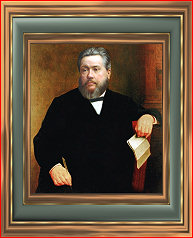 Spurgeon took the senior pastoral role in London's largest, most historic, and best-known Baptist church when he was still in his teens, and he stayed there, faithfully preaching at least three new sermons each week for the remainder of his life. At the peak of his ministry, one of his sermons was published each week and distributed to millions on both sides of the Atlantic. But by the end of his life he had fallen out of favor with the majority of English Baptists. They thought he was an ageing old crank and an alarmist for warning against the dangers of modernism. Time has fully vindicated Spurgeon, and more people are reading his sermons today than were reading him during his lifetime. He is one of those rare, enduring figures of church history whose influence is felt across centuries of time.
Spurgeon took the senior pastoral role in London's largest, most historic, and best-known Baptist church when he was still in his teens, and he stayed there, faithfully preaching at least three new sermons each week for the remainder of his life. At the peak of his ministry, one of his sermons was published each week and distributed to millions on both sides of the Atlantic. But by the end of his life he had fallen out of favor with the majority of English Baptists. They thought he was an ageing old crank and an alarmist for warning against the dangers of modernism. Time has fully vindicated Spurgeon, and more people are reading his sermons today than were reading him during his lifetime. He is one of those rare, enduring figures of church history whose influence is felt across centuries of time.








